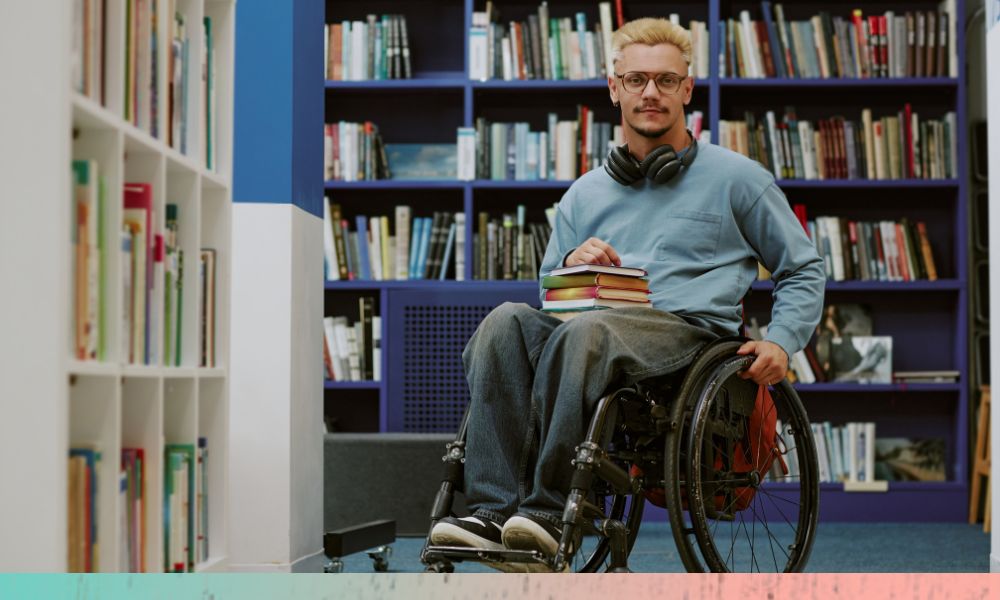Being Heumann: An Unrepentant Memoir of a Disability Rights Activist by Judith Heumann
- Why it’s impactful: Written by one of the most influential leaders in the disability rights movement, this memoir highlights the fight for inclusion and accessibility. It’s inspiring, eye-opening, and deeply human.
- Who it helps: People with disabilities who want to see representation and strength, and allies who want to understand the history of disability rights.
Born Extraordinary by Meg Zucker
- Why it’s impactful: A practical, compassionate guide for parents raising children with differences, focused on empowerment and confidence-building.
- Who it helps: Parents and caregivers of children with visible or invisible disabilities; educators supporting diverse learners.
Care Work: Dreaming Disability Justice by Leah Lakshmi Piepzna-Samarasinha
- Why it’s impactful: Centers disability justice, especially within marginalized communities, and explores care as a political and communal practice.
- Who it helps: Disabled activists and community builders; allies who want to understand systemic injustice and collective care.
Crip Up the Kitchen: Tools, Tips, and Recipes for the Disabled Cook by Jules Sherred
- Why it’s impactful: A cookbook and practical guide that dismantles ableism in cooking by making kitchens more accessible through adaptive tools and techniques.
- Who it helps: Disabled and neurodivergent cooks; caregivers and allies who want to support independence in daily living.
Demystifying Disability by Emily Ladau
- Why it’s impactful: An approachable, practical guide for allies on how to support disabled people with respect, understanding, and inclusive action.
- Who it helps: Friends, family, coworkers, and anyone looking for a starting point in disability allyship.
Disability Pride: Dispatches from a Post-ADA World by Ben Mattlin
- Why it’s impactful: A sweeping portrait of disability culture today, examining activism, representation, systemic ableism, and the future of disability justice.
- Who it helps: Disabled readers seeking cultural context; allies wanting to understand both the progress and gaps since the ADA.
Disability Visibility: First-Person Stories from the Twenty-First Century edited by Alice Wong
- Why it’s impactful: A powerful anthology of essays by disabled writers, covering daily life, systemic barriers, and personal triumphs.
- Who it helps: Differently abled readers who want solidarity, and supporters who want to learn directly from lived experiences.
Floppy: Tales of a Genetic Freak of Nature at the End of the World by Alyssa Graybeal
- Why it’s impactful: A playful, candid memoir exploring the emotional landscape of living with Ehlers-Danlos syndrome, full of humor and honesty.
- Who it helps: Readers with chronic illness seeking resonance; allies who want insight into invisible disability.
Golem Girl by Riva Lehrer
- Why it’s impactful: A visually rich memoir from an artist born with disabilities, weaving art, creativity, and the search for freedom into disability storytelling.
- Who it helps: Artists, readers with disabilities, and allies interested in creativity, representation, and self-expression.
Haben: The Deafblind Woman Who Conquered Harvard Law by Haben Girma
- Why it’s impactful: The memoir of the first Deafblind graduate of Harvard Law, this book demonstrates resilience, humor, and creativity in navigating barriers.
- Who it helps: Differently abled individuals seeking role models; allies who want insight into communication, accessibility, and persistence.
Hunchback by Saou Ichikawa
- Why it’s impactful: A bold, darkly humorous novel that pushes against taboos, exploring autonomy and dignity in the life of a young disabled woman in a care home.
- Who it helps: Readers drawn to fiction that challenges cultural norms and explores disability with unflinching honesty.
Life on Delay by John Hendrickson
- Why it’s impactful: A raw memoir about life with a stutter, blending personal narrative with a broader look at resilience, speech, and acceptance.
- Who it helps: Readers with speech differences; allies who want to better understand stuttering beyond stereotypes.
Loud Hands: Autistic People, Speaking edited by Julia Bascom
- Why it’s impactful: Essays by autistic people reclaiming their own voices, experiences, and expertise.
- Who it helps: Autistic readers looking for community, and parents, educators, and employers who want to better understand autism from autistic perspectives.
No Pity: People with Disabilities Forging a New Civil Rights Movement by Joseph P. Shapiro
- Why it’s impactful: A journalistic look at the disability rights movement in America, emphasizing civil rights over pity or charity.
- Who it helps: Advocates, policymakers, and anyone who wants a deeper understanding of the fight for disability rights.
The Pretty One: On Life, Pop Culture, Disability, and Other Reasons to Fall in Love with Me by Keah Brown
- Why it’s impactful: A collection of essays blending humor and honesty, tackling topics from dating to representation in media.
- Who it helps: Young adults and allies looking for an approachable, joyful, yet real perspective on disability and identity.
Sitting Pretty: The View from My Ordinary Resilient Disabled Body by Rebekah Taussig
- Why it’s impactful: A candid, relatable memoir/essay collection on living with paralysis, challenging ableism, and redefining “normal.”
- Who it helps: Readers wanting a warm, story-driven way to understand everyday disability experiences.
We’ve Got This: Essays by Disabled Parents edited by Eliza Hull
- Why it’s impactful: The first major anthology by parents with disabilities, breaking silence on parenting experiences shaped by ableism and resilience.
- Who it helps: Disabled parents seeking representation; allies and family members who want to better support parenting in disability contexts.
There Plant Eyes: A Personal and Cultural History of Blindness by M. Leona Godin
- Why it’s impactful: A blend of memoir, history, and cultural critique that challenges stereotypes about blindness and reframes how society views sight.
- Who it helps: Blind readers seeking representation; allies, educators, and cultural critics examining how blindness is represented in history and art.
This Is Body Grief by Jayne Mattingly
- Why it’s impactful: A groundbreaking framework for understanding and moving through “body grief” with compassion, acceptance, and hope.
- Who it helps: People adjusting to changing bodies; allies and caregivers learning how to support through compassion rather than pity.
